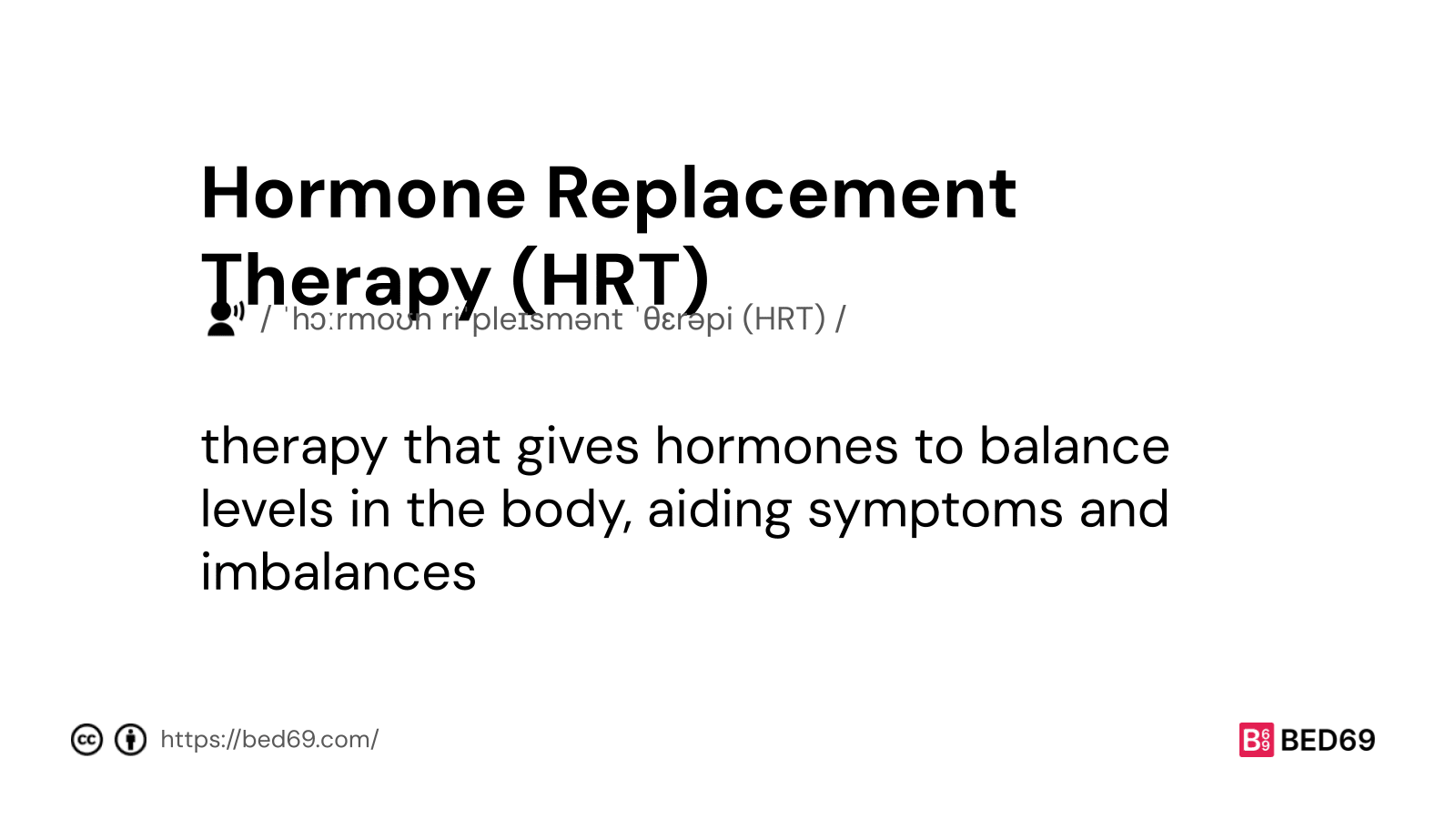What is Hormone Replacement Therapy (HRT)?
Hormone Replacement Therapy (HRT) involves giving hormones to balance levels in the body. It can help menopausal women with symptoms like low sex drive or vaginal dryness. HRT is used by transgender individuals and sometimes men with low testosterone. It’s a choice for hormone imbalances at any life stage.
Hormone Replacement Therapy (HRT) pronunciation: / ˈhɔːrmoʊn riˈpleɪsmənt ˈθɛrəpi (HRT) /

Benefits of HRT for Menopausal Symptoms
Hormone Replacement Therapy (HRT) offers relief for menopausal symptoms like low sex drive and vaginal dryness. It helps balance hormones crucial for well-being. Not just for menopausal women, HRT is also beneficial for transgender individuals and men with low testosterone levels. It addresses hormone imbalances at different life stages. By regulating hormone levels, HRT can enhance sexual pleasure and overall quality of life during menopause.
While some debate its side effects and implications, many find it a valuable option for managing symptoms. HRT plays a significant role in maintaining hormonal balance and improving quality of life for individuals experiencing various hormone-related challenges.
Risks and Considerations of HRT
When considering Hormone Replacement Therapy (HRT), it’s crucial to be aware of potential risks and factors to ponder. HRT can lead to side effects like bloating, breast tenderness, or mood swings, requiring close monitoring. Long-term use may pose risks for heart disease, blood clots, or certain cancers. Importantly, HRT isn’t suitable for everyone, especially those with a history of certain medical conditions.
Discuss thoroughly with a healthcare provider to weigh benefits against potential risks. Understanding these aspects can guide individuals in making informed decisions about whether HRT is the right choice for them.
Explore other interesting terms:
